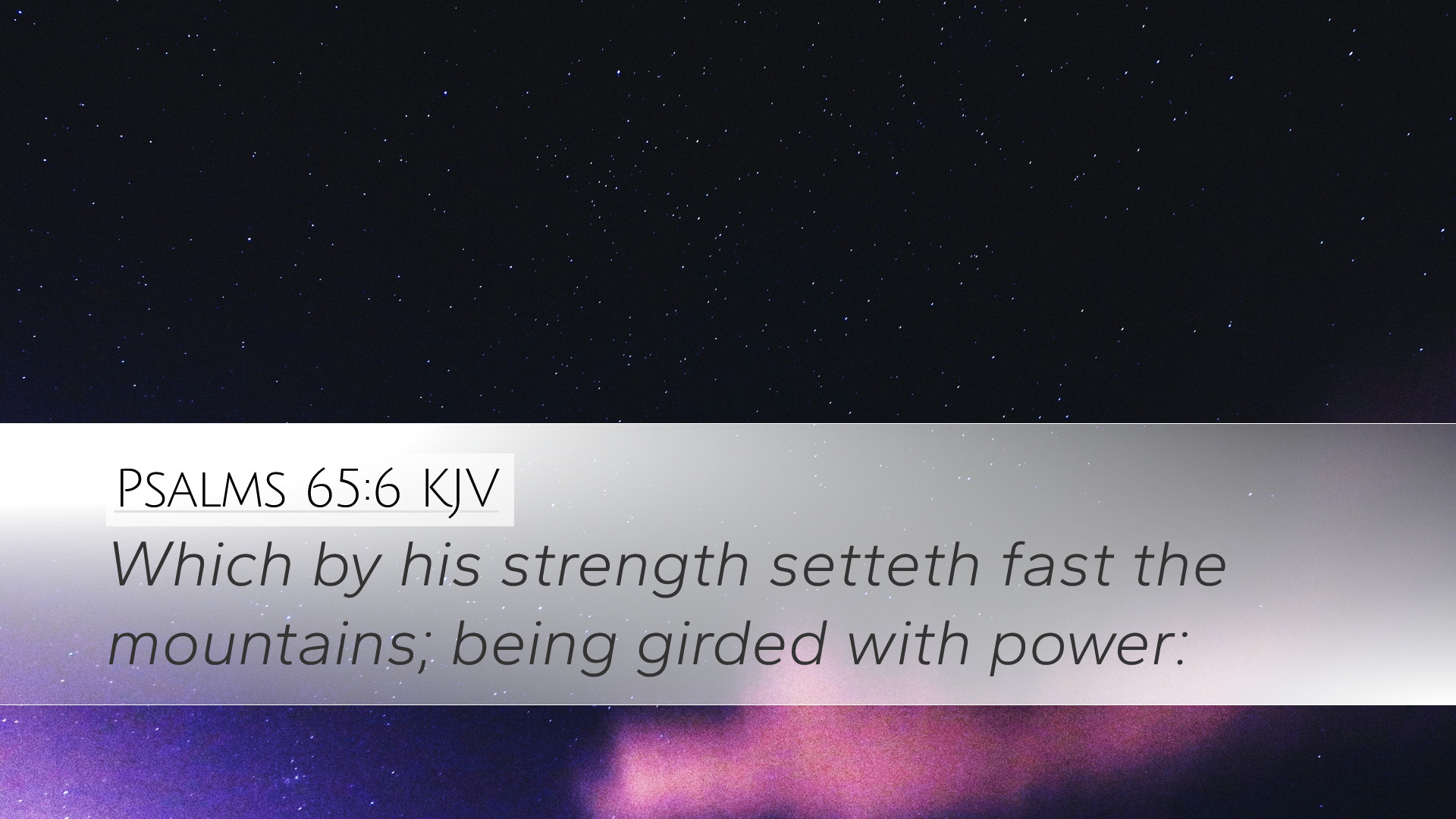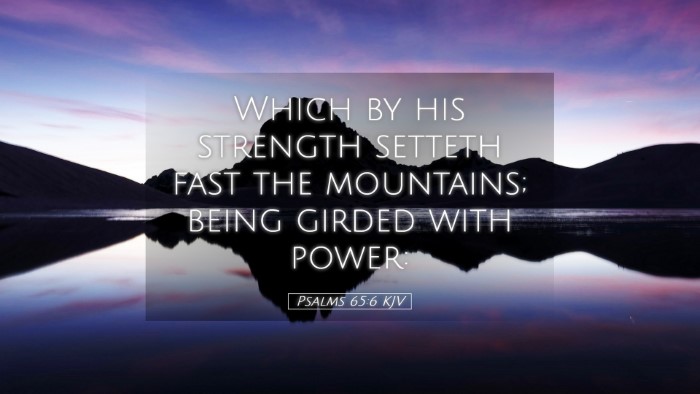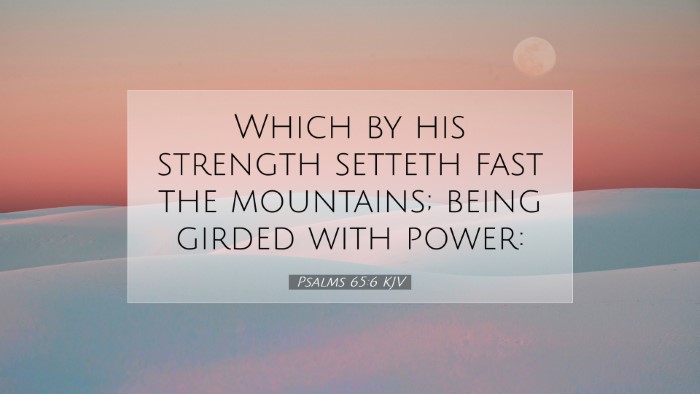Psalms 65:6 - Commentary Overview
Verse: "Which by his strength setteth fast the mountains; being girded with power." (Psalms 65:6, KJV)
Introduction
The verse from Psalms 65:6 speaks profoundly to God's sovereignty and omnipotence in creation. The imagery of mountains, often seen as stable and unmovable, becomes a metaphor for God's strength and the assurance His creation brings. This commentary synthesizes insights from Matthew Henry, Albert Barnes, and Adam Clarke, providing theological depth for pastors, students, and scholars.
Thematic Insights
- The Power of God: The psalmist asserts that it is God who establishes and secures the mountains. This declaration emphasizes His role as the Creator and sustainer of all that exists.
- The Stability of Creation: Mountains symbolize stability and permanence. In a world characterized by change and uncertainty, the steadfastness of God’s creation reassures believers of His power.
- Divine Sovereignty: The act of 'girding' implies preparation for action. God is portrayed as ready and equipped to uphold the world, signifying His ability to intervene in the affairs of nations and individuals.
Commentary Breakdown
Matthew Henry’s Commentary
Matthew Henry highlights God's omnipotence in this passage, stating that it is by His strong arm that mountains stand firm. He argues that the imagery of mountains representing the turmoil and challenges in life serves as a reminder that God’s strength supports believers. Henry comments on God's majesty, suggesting that He 'setteth fast' implies an active role in both creation and providence.
Albert Barnes’ Insights
Albert Barnes emphasizes three key elements: the establishment of mountains, the divine power behind them, and the security they represent. Barnes elaborates that this verse underscores the contrast between human frailty and divine strength. He believes that the psalmist expresses comfort for the believer in knowing that just as God governs the natural world, He also governs the moral and spiritual realms, controlling the chaos of human experience.
Adam Clarke’s Analysis
Adam Clarke addresses the poetic structure of this psalm, noting that it serves as an invitation to contemplate God's creative work in nature. He explains that the phrase 'being girded with power' signifies not just physical strength, but divine authority. Clarke also points out the use of vivid imagery to illustrate God's control over nature, providing believers with assurance amidst life’s uncertainties.
Theological Implications
- Creation and Worship: Acknowledging God’s power in creation manifests in praise and worship. This aligns with the natural response of humanity to recognize God’s greatness.
- Providence in Trials: Understanding that God upholds creation encourages believers during trials. Just as God establishes mountains, He sustains His people through life's challenges.
- Assurance of God’s Sovereignty: This verse reassures believers that their lives are under divine providence, ensuring peace in the face of life's storms.
Practical Applications
- Encouragement for the Weak: Pastors can use this verse to encourage those feeling overwhelmed, reminding them of God’s strength working in their lives.
- Faithfulness in Uncertainty: This passage serves as a foundation for preaching on faithfulness amidst uncertainty, providing a secure anchor in the faith journey.
- Creation as a Reflection of God's Character: This verse can prompt discussions about creation care, viewing the natural world as a reflection of God's power and majesty.
Conclusion
Psalms 65:6 beautifully encapsulates the majesty and power of God. By exploring the insights from respected commentaries, we enhance our understanding of God's role as the Creator and sustainer. This rich verse serves not only as a theological affirmation but also as a source of encouragement and reassurance for believers faced with the complexities of life.


